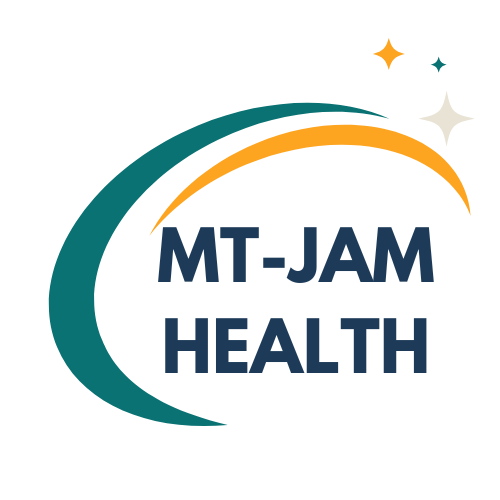
The COVID-19 pandemic has hit Africa hard, and the need for an effective vaccine rollout has never been more crucial. However, the success of the vaccination drive hinges not just on the availability of vaccines, but also on effective crisis communication. Unfortunately, misinformation and poor communication have led to vaccine hesitancy in many African countries, posing a serious threat to public health. In this article, we’ll explore the dangerous consequences of poor crisis communication in Africa’s vaccine drive. From the spread of conspiracy theories to the lack of trust in government and healthcare systems, we’ll delve into the root causes of this issue and examine potential solutions. Join us on this journey as we shed light on the urgent need for clear and effective crisis communication in the fight against COVID-19.
Understanding the Importance of Crisis Communication in Africa’s Vaccine Drive
Crisis communication is a critical component of any public health initiative, and the COVID-19 pandemic is no exception. In Africa, where many countries lack robust healthcare systems and resources, effective communication is even more crucial. When it comes to vaccine rollout, clear and accurate information is essential to build trust and encourage uptake.
Unfortunately, many African countries have struggled with poor crisis communication during the pandemic. This has led to confusion and misinformation, which in turn has fuelled vaccine hesitancy. To combat this, it’s important to understand the impact of misinformation and conspiracy theories on vaccine hesitancy. For example, in Tanzania, the government downplayed the severity of the pandemic and discouraged testing and vaccination. This lack of clear communication led to confusion and mistrust among citizens.
In Nigeria, misinformation and conspiracy theories about the vaccine have spread rapidly through social media. This has led to a significant amount of vaccine hesitancy, despite efforts by health officials to provide accurate information. These examples illustrate the dangers of poor crisis communication and the urgent need for clear and effective messaging.
The Impact of Misinformation and Conspiracy Theories on Vaccine Hesitancy
Misinformation and conspiracy theories have been a major challenge in Africa’s vaccine drive. These false narratives can spread quickly through social media and other channels, making it difficult for accurate information to break through. Some common myths include:
- The vaccine was developed too quickly and is not safe
- The vaccine contains microchips or other tracking devices
- The vaccine is a ploy by the government to control the population
Believing these myths can lead to vaccine hesitancy, which can in turn prolong the pandemic and put more lives at risk. It’s important to address these false narratives head-on with accurate information and clear communication.
Lack of Trust in Government and Healthcare Systems as a Barrier to Vaccination
In addition to misinformation, lack of trust in government and healthcare systems can also be a barrier to vaccination. Many African countries have a history of corruption and poor governance, which can make citizens skeptical of official information and recommendations.
This lack of trust can be compounded by a lack of access to healthcare services and resources. In some cases, people may not have easy access to vaccination sites or may not have the means to travel to them. Addressing these structural barriers is important to ensure that everyone has access to the vaccine.
Best Practices for Effective Crisis Communication in Vaccine Rollout
So, what can be done to improve crisis communication in Africa’s vaccine drive? Here are some best practices:
- Use clear and simple language to communicate with the public: Using medical jargons can confuse the lay population. It is important to use break down words so that people understand.
- Address misinformation and conspiracy theories head-on with accurate information: Do not ignore misinformation.
- Engage with community leaders and influencers to build trust and encourage uptake: Language and cultural barriers can also be a challenge in crisis communication. In many African countries, there are multiple languages and cultural norms that must be taken into account. To overcome these barriers, it’s important to work with community leaders and organizations to ensure that communication is culturally appropriate and accessible. This can include using local languages and incorporating traditional practices into communication strategies.
- Provide easy access to vaccination sites and resources
- Use social media and other channels to reach a wide audience: Media and social media can play a powerful role in shaping public perception of the vaccine. Unfortunately, these channels can also be a source of misinformation and conspiracy theories. To combat this, it’s important to engage with media and social media influencers to provide accurate information and address false narratives. By working together, public health officials and media can help build trust and encourage uptake of the vaccine.
- The Need for Ongoing Communication and Transparency in Vaccine Distribution: Finally, it’s important to emphasize the need for ongoing communication and transparency in vaccine distribution. As the pandemic evolves, new information and challenges will emerge. It’s important to keep the public informed and engaged throughout the process. This can include regular updates on vaccine availability, changes to distribution plans, and new safety information. By maintaining open lines of communication, public health officials can help build trust and encourage ongoing uptake of the vaccine.
There is an Urgent Need for Clear and Effective Crisis Communication to Combat Vaccine Hesitancy in Africa. The COVID-19 pandemic has highlighted the critical importance of crisis communication in public health initiatives. In Africa’s vaccine drive, poor communication and misinformation have led to vaccine hesitancy, posing a serious threat to public health.
To combat this, it’s important to use clear and simple language, address false narratives head-on, and engage with community leaders and influencers. International organisations can also provide support and resources to improve communication strategies.
By working together and emphasising the importance of ongoing communication and transparency, we can help combat vaccine hesitancy and end the COVID-19 pandemic.





